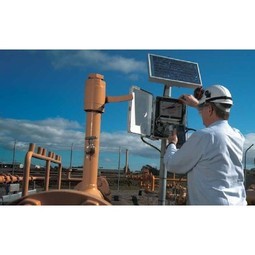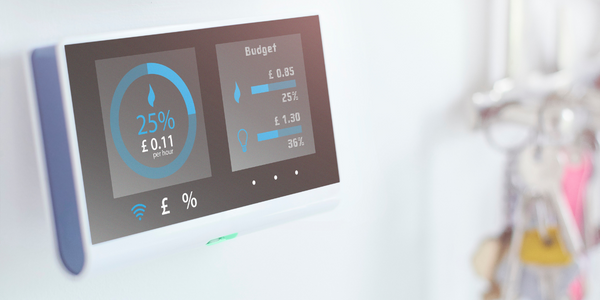EPCOR Selects Avetta to Ensure Consistent, Reliable Vendor Prequalification
Customer Company Size
Large Corporate
Region
- America
Country
- Canada
- United States
Product
- Avetta Supplier Prequalification
- Avetta Insurance Monitoring
- Avetta Supplier Audits
Tech Stack
- Cloud-based Program
- Document Management System
- User Interface
Implementation Scale
- Enterprise-wide Deployment
Impact Metrics
- Cost Savings
- Productivity Improvements
- Customer Satisfaction
Technology Category
- Application Infrastructure & Middleware - Data Exchange & Integration
- Application Infrastructure & Middleware - Data Visualization
- Platform as a Service (PaaS) - Connectivity Platforms
Applicable Industries
- Utilities
Applicable Functions
- Business Operation
- Procurement
- Quality Assurance
Services
- Cloud Planning, Design & Implementation Services
- System Integration
- Training
About The Customer
EPCOR Utilities Inc. is a utility company that builds, owns, and operates electrical, natural gas, and water transmission and distribution networks, water and wastewater treatment facilities, sanitary and stormwater systems, and infrastructure in Canada and the U.S. Founded in 1891 and headquartered in Edmonton, Alberta, Canada, EPCOR operates with a mission to provide clean water and safe, reliable energy. The company has a significant presence in both Canada and the United States, managing a wide array of utility services to meet the needs of its diverse customer base. EPCOR is committed to maintaining high standards of safety, quality, and environmental responsibility in all its operations.
The Challenge
As a growing international utility company, EPCOR strives to meet customer needs, provide a safe work environment, and comply with government regulations. Contractors help the company keep its water, sewer, and power systems in peak working order. Management of the contractor relationships across its supply chain was spread throughout the various business units. However, EPCOR wanted a consistent contractor vetting process to ensure that it had the right contractors in the right place and at the right time, and to reduce risk for everyone. To support the continued growth of the company, EPCOR committed to improving prequalification, centralizing prequalification functions, and providing consistent contractor oversight to all the company’s business units. But meeting those goals requires significant administrative work to obtain and verify contractor information and keep the data current. To remain competitive and reach its quality and safety goals, EPCOR needed a system that would reduce its administrative burden and ensure the accurate and consistent vetting of contractors.
The Solution
Avetta differentiated itself from other providers with a strong prequalification process, a solid track record, and favorable pricing. Avetta’s cloud-based program gives EPCOR a complete view of its supply chain, and Avetta’s compliance specialists manage the program, reducing EPCOR’s administrative burden. Avetta’s steady communication with contractors also helps set expectations for the contractors and ensure that nothing is overlooked. In addition, the ease of use of the Avetta user interface was a major factor. “We had experience using other systems as contractors, and we knew how painful the process can be,” said Guy Greenwall, Senior Manager of Health, Safety, and Environment (HSE) for EPCOR. “Ease of use was important not just for us, but also for our contractors.” Avetta’s system for flagging contractors’ qualifications and any gaps is easy to understand. EPCOR can quickly and easily see if an amber or red flag is for a minor or major problem, and they can set controls on a contractor as needed to address specific issues. “When a contractor has a green flag in Avetta, we’re confident that we're off to a good start,” said Greenwall.
Operational Impact
Quantitative Benefit

Case Study missing?
Start adding your own!
Register with your work email and create a new case study profile for your business.
Related Case Studies.

Case Study
IoT Solutions for Smart City | Internet of Things Case Study
There were several challenges faced: It is challenging to build an appliance that can withstand a wide range of voltage fluctuations from as low at 90v to as high as 320v. Since the device would be installed in remote locations, its resilience was of paramount importance. The device would have to deal with poor network coverage and have the ability to store and re-transmit data if networks were not available, which is often the case in rural India. The device could store up to 30 days of data.

Case Study
Automation of the Oguz-Gabala-Baku water pipeline, Azerbaijan
The Oguz-Gabala-Baku water pipeline project dates back to plans from the 1970’s. Baku’s growth was historically driven by the booming oil industry and required the import of drinking water from outside of the city. Before the construction of the pipeline, some 60 percent of the city’s households received water for only a few hours daily. After completion of the project, 75 percent of the two million Baku residents are now served around the clock with potable water, based on World Health Organization (WHO) standards. The 262-kilometer pipeline requires no pumping station, but uses the altitude differences between the Caucasian mountains and the capital to supply 432,000 m³/d to the Ceyranbatan water reservoir. To the people of Baku, the pipeline is “the most important project not only in 2010, but of the last 20 years.”

Case Study
GPRS Mobile Network for Smart Metering
Around the world, the electricity supply industry is turning to ‘smart’ meters to lower costs, reduce emissions and improve the management of customer supplies. Smart meters collect detailed consumption information and using this feedback consumers can better understand their energy usage which in turn enables them to modify their consumption to save money and help to cut carbon emissions. A smart meter can be defined in many ways, but generally includes an element of two-way communication between the household meter and the utility provider to efficiently collect detailed energy usage data. Some implementations include consumer feedback beyond the energy bill to include online web data, SMS text messages or an information display in consumers’ premises. Providing a cost-effective, reliable communications mechanism is one of the most challenging aspects of a smart meter implementation. In New Zealand, the utilities have embraced smart metering and designed cost effective ways for it to be implemented. The New Zealand government has encouraged such a move to smart metering by ensuring the energy legislation is consistent with the delivery of benefits to the consumer while allowing innovation in this area. On the ground, AMS is a leader in the deployment of smart metering and associated services. Several of New Zealand’s energy retailers were looking for smart metering services for their residential and small business customers which will eventually account for over 500,000 meters when the multi-year national deployment program is concluded. To respond to these requirements, AMS needed to put together a solution that included data communications between each meter and the central data collection point and the solution proposed by Vodafone satisfied that requirement.

Case Study
NB-IoT connected smart meters to improve gas metering in Shenzhen
Shenzhen Gas has a large fleet of existing gas meters, which are installed in a variety of hard to reach locations, such as indoors and underground, meaning that existing communications networks have struggled to maintain connectivity with all meters. The meter success rate is low, data transmissions are so far unstable and power consumption is too high. Against this background, Shenzhen Gas, China Telecom, Huawei, and Goldcard have jointly trialed NB-IoT gas meters to try and solve some of the challenges that the industry faces with today’s smart gas meters.

Case Study
OneWireless Enabled Performance Guarantee Test
Tata Power's power generation equipment OEMs (M/s BHEL) is required to provide all of the instrumentation and measurement devices for conducting performance guarantee and performance evaluation tests. M/s BHEL faced a number of specific challenges in conducting PG tests: employing high-accuracy digital communications for instrumentation, shortening setup and dismantling time, reducing hardware required, making portable instrument setup, avoiding temporary cabling work and the material waste costs

Case Study
British Gas Modernizes its Operations with Innovative Smart Metering Deployment
The UK government has mandated that smart meters are rolled out as standard across Great Britain by end of 2020, and this roll-out is estimated to create £14 billion in net benefits to the UK in consumer energy savings and lower energy generation demand, according to the Oxford Economics report, “The Value of Smart Metering to Great Britain.” While smart-metering systems have been deployed in many countries, the roll-out in Great Britain is unique because it is led by energy retailers, who have responsibility for the Electricity and Gas meters. The decision to have a retailer-led roll out was made by DECC (Department of Energy and Climate Change) to improve customer experience and drive consumer benefits. It has also led to some unique system-level requirements to support the unique local regulatory model.


